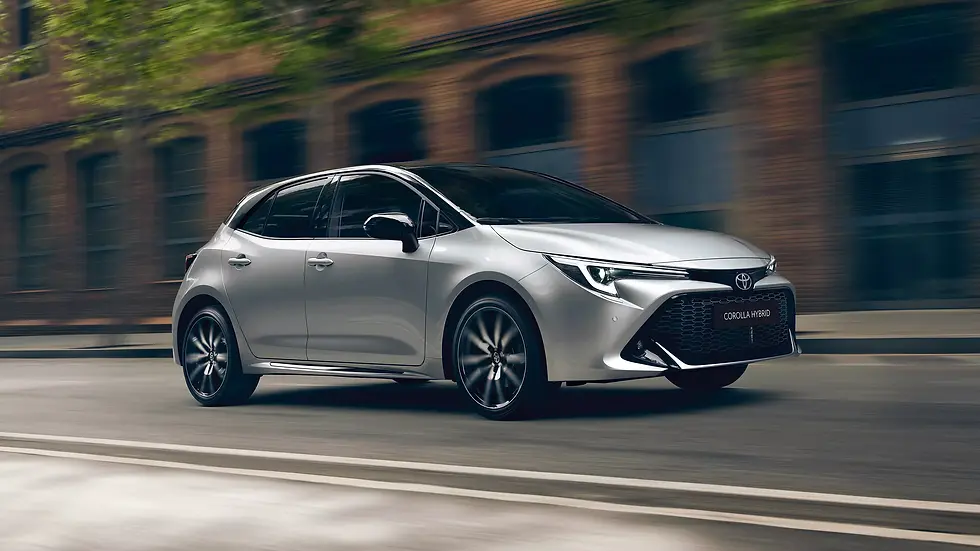Is Your Insurance Spying on You? How to Protect Your Data from Modern Cars
- Mark Grey
- Apr 28, 2025
- 3 min read
Cars have come a long way since the days of simple engines and analog dials. Today’s vehicles are rolling computers, equipped with high-tech systems that can track everything from your location to your driving habits. While this tech is convenient, it comes with a trade-off: your data.

Ever wondered if your dealership or automaker is keeping tabs on you? The answer is likely yes. But don’t worry—you have the power to take control. Here’s how you can find out what your car is sharing and take steps to protect your privacy.
1. Start with the Fine Print: Check the Privacy Policy
When you bought your car, chances are you skipped over the privacy policy (who doesn’t?). But this document is key to understanding what your automaker is collecting. It’s often buried in your car’s manual, available on the automaker’s website, or sent via email.
Look for details like:
• What data they collect (location, driving behavior, maintenance info).
• How the data is used (ads, diagnostics, third-party sharing).
• Whether you can opt out of certain data collection practices.
If it sounds like Big Brother on wheels, that’s because it kind of is.
2. Tinker with Your Tech: Adjust Your Car’s Settings
Most modern vehicles let you customize data-sharing settings directly through the infotainment system or a connected app.
Here’s how to check:
• Dive into the system’s privacy or data-sharing menu.
• Review permissions for features like GPS tracking or remote diagnostics.
• Disable anything that feels unnecessary.
Don’t want your car broadcasting your every move? Turn off location sharing. Don’t care for “helpful” maintenance reminders? Opt-out where you can.
3. Ask Questions at the Manufacturer, Protect Your Data!
Sometimes, the simplest solution is just to ask. Call or visit your dealership and get clarity on what’s being tracked.
Ask questions like:
• What data does my car collect?
• How is it being used, and who sees it?
• Can I request a report or opt out?
If they can’t answer these questions, that might be a red flag.
4. Dig Deeper into Connected Services
Features like remote vehicle access, live traffic updates, or preconditioning your car are awesome—but they’re also data goldmines. Automakers like Volkswagen, Toyota, and Tesla use apps to connect you to your car. These apps often collect far more data than you realize.
Check the app’s settings or website to understand what you’re agreeing to, and scale back sharing where possible.
5. Use Tools to Monitor Data Activity
For the privacy-savvy, there are tools that can help you figure out what your car is transmitting:
• OBD-II Scanners: Plug these into your car’s diagnostic port to get a better sense of the systems in play.
• Privacy Apps: Tools like Privacy4Cars can help you identify and erase personal data stored in your vehicle.
It’s like running a diagnostic on your car’s privacy settings.
6. Know Your Rights: Check Local Laws

Depending on where you live, you may have rights to access, delete, or limit how your data is used. Laws like the EU’s GDPR or California’s CCPA let you file data requests with companies.
Reach out to your automaker and ask them to provide a full breakdown of the data they have on you. It’s your right to know.
7. Opt Out When Possible
Some automakers let you opt out of specific types of data collection, such as tracking for advertising purposes. Keep in mind that opting out might disable certain features, like live navigation or remote lock/unlock. If you value your privacy more than convenience, it’s a worthwhile trade-off.
8. Watch for the Signs
Modern cars often give subtle clues about what they’re tracking. Features like real-time traffic, live diagnostics, or app-based remote controls almost always rely on data-sharing. If your car is “talking” to you in real-time, it’s likely sending data back to the manufacturer.
Final Gear
Data privacy might not be the first thing on your mind when buying a car, but in today’s connected world, it’s essential. Automakers are building vehicles that double as data collectors, and while some of it enhances the driving experience, it’s critical to know where to draw the line.

By following these steps, you can take the driver’s seat when it comes to protecting your data. After all, your car should work for you—not the other way around.




Comments